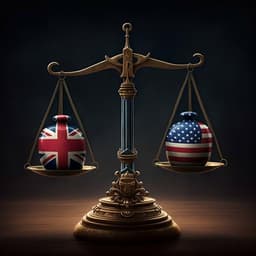
Political Science
A South Asian neutral power in the United Nations: India's peacekeeping mission on the Korean peninsula (1947–1955)
D. W. Kim
Discover how India navigated complex global politics as a 'neutral power' during the Korean War and laid the groundwork for future peacekeeping efforts, all through diplomatic means. This insightful research was conducted by David W. Kim.
Related Publications
Explore these studies to deepen your understanding of the subject.







